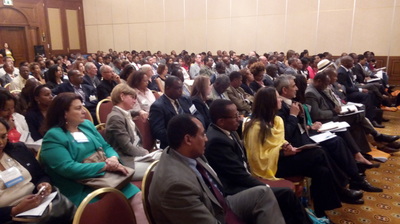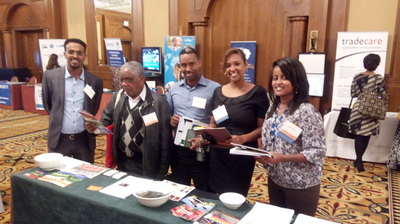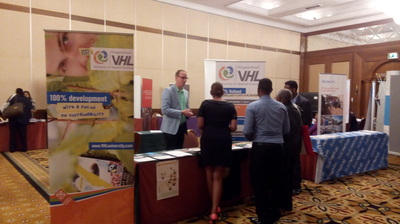|
Today newly appointed Minister of Foreign Affairs in the Netherlands presented his foreign policy. The successor of Frans Timmermans, Mr. Bert Koenders, just returned from his post as United Nations special envoy for the Mali peacekeeping mission. Possibly this was the best training a Minister of Foreign Affairs could receive. Though previously serving as a Minister for Development Cooperation, Mr. Koenders left the aid & trade agenda to his colleague Mrs. Ploumen and focussed on safety and security in his first parlementarian debate on his new policy choices. Self-interest The notion of self-interest, consistently present in Dutch foreign policy during the last decade, still prevailed with the concerns of Dutch citizens taking centre stage. What is interesting is a broad concept of safety and security that Koenders presented. This translates in a refocus on countries bordering Europe called the first ring. Countries bordering Libya were a case in point. If this also translates into a shift in the investment agenda is still to be seen. However, I can imagine that the current instability really requires economic opportunities for citizens to counter balance the sense of being left behind. Lastly values take the centre stage again. "Our values are our interests" was a motto that Koenders expressed. This is a much needed correction on the economic diplomacy agenda that had the upper hand in the past couple of years. Safety and justice Koenders also connected safety to justice, which refers to the lack of chances for those minorities that are turning to extremism. Again a ring of investment around Europe will try to undo some of the sensitivities herein. Explicit reference was made to the situation in Libya, of which Koenders experienced the spin-off in Mali. Increased investment in Tunesia and Egypt seems opportune in this respect though this was not explicitly mentioned. Naturally also Russia and the situation in Syria received ample attention, in particular the belt of nations to the south of Russia was mentioned as a forgotten region that needed due attention. At the same time Koenders was a realist in stating that a lot needs to be done at European level and within the context of the UN and NATO, however often a broker role was envisaged to bring parties around the table. Political solutions featured heavily in Koenders speech where he emphasized that the Netherlands should not be tempted to choose sides, in particular in the Israeli-Palestinian conflict. He did not want to follow the example of Sweden who recognized the Palestinian State, despite peer pressure from Mr. Servaes of his own Labour party and his colleague from the Socialist party Mr. van Bommel. Prevention & Early Warning It was good to hear that also due attention was given to prevention and early warning. Mr. Koenders made very clear that when conflicts get to the surface suffiicent media attention is received and as a result funds are mobilised to help victims. However, preventing conflicts to erupt is not much rewarding in terms of political gains. Nevertheless he considered it worth investing, also in the aftermaths of crises. This is good news for our Disaster Recovery Management students that will be looking for jobs in a while, but more importantly it is good news for the communities that are highly vulnerable to conflicts related disasters. The technical solution does not always suffice. Often you need political solutions first. However, that is quite a challenge in the current geo-political landscape. Anyway, it kept our parlementarians busy till 2:22 AM next day.
0 Comments
On this blog I have once argued that development is not something you can manage or sell. It just happens despite many efforts of people and organisations to exert control over it. Even the names of the courses I am attached to at VHL University suggest that development is something you can manage. Last Saturday I reached out to young people in the Netherlands considering studying at VHL University in Velp next year where we are offering the course International Development Management. At VHL we also offer a Professional Masters courses and last week I was at the DEVEX Career forum in Addis Ababa reaching out to prospective students 'selling' them our twice awarded Top Ranking Educational Courses. Next week once again the AidEx opens its doors during their annual event in Brussels, providing a market place to a number of agencies that make big business contributing to humanitarian aid. So development may not be something you can manage, but apparently it is something you can sell.
Development despite the market What does this imply? There is a market place for development. Simultaneously amongst donors at least, there is a great desire to be able to manage development. At least proper management of development projects is something that is a necessity, at least for accountability purposes. Nevertheless development still happens even if projects are managed poorly. For the last two years we had in average 70 international students joining us for a full year, only to learn that development happens despite efforts from many agencies to steer it to their advantage. I personally travel with students through the institutional development landscape engaging them with various discourses on aid and trade, public-private partnerships, civic driven change and you name it. It only goes to show that the world has become a global village and that there really is something like a global development market place. World Investment Forum This has also been recognized by those trying to manage Sustainable Development as it evolves towards the MDG deadline of 2015. Sustainable Development is hot. The global development industry is opening its doors to investors to come in and join forces with governments and NGOs in public-private partnerships for sustainable development. This became particularly visible during the recent World Investment Forum organized by UNCTAD in Geneva. Several sessions were held with representatives of the public and private finance industry, some including some international non-governmental organizations. On the third day for example a round table with sovereign wealth funds was held. Sovereign Wealth Funds are state-owned investment funds investing in real and financial assets. Sovereign wealth funds invest globally. Most SWFs are funded by revenues from commodity exports or from foreign-exchange reserve held by central banks. Their total value according to UNCTAD is estimated at 6 trillion dollar. Together with the public pension funds of 18 trillion dollar representing a substantial financial resource base. Sustainability investment Putting up some investment standards for these amounts of funding can make a difference. The question is will states allow oversight over their most important fiscal tool despite the efforts of UNCTAD to draft an Investment Policy Framework for Sustainable Development in Doha in 2012. It is important to see both Norway and China (as two of the biggest sovereign wealth fund managers) present at this round table. With a special Issues Note UNCTAD tries to table the necessary reforms that should address some of the fundamental flaws of the system of International Investment Agreements. Will UNCTAD and others manage to persuade the investment business to divert its flows to impact development positively? At least sufficient countervailing power needs to be generated in societies to make governments manage public finance in such a way that it delivers for people and planet as well. Reinvent profit And here is where we come in again as educators in the development landscape. If current trends prevail our graduates will need to be fully equipped, not only to function as innovators in the rural space but even as advisors to international fund managers on where to spend their money and how to manage their risks. I am afraid we will need some additional cross-sector partnerships in order to master this new vocabulary and converse with the field of global finance to help reinvent the notion of profit. Our marketing at open days and exhibitions will hopefully bring us a new caseload of critical minds that are motivated to help us redefine management of development altogether. |
About meMy name is Reinier van Hoffen. U®Reading
Click here for a summary.
Also find the text of a lecture Dr. Achterhuis held at the 2012 Bilderberg conference. Archives
August 2022
|
AddressNachtegaallaan 26
Ede, the Netherlands |
Telephone+31 (0)6 1429 1569
|
info@uraide.nl
|



 RSS Feed
RSS Feed
















